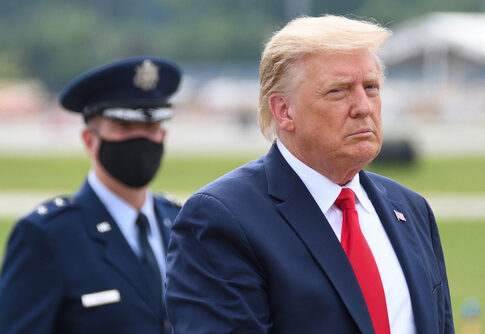President Donald Trump stands at a crucial crossroads as July 4th approaches, poised to make a pivotal decision on whether to authorize military strikes against Iran. The stakes couldn’t be higher as Iran reportedly nears nuclear weapon capability, escalating tensions with Israel through recent attacks. Why does Israel desire U.S. military involvement in attacking Iran’s nuclear facility?
Trump’s Critical Iran Decision
President Donald Trump is expected to decide whether the United States will launch military strikes against Iran within the next two weeks, potentially before July 4th. This decision comes amid escalating tensions between Iran and Israel, with Trump expressing support for Israel’s airstrikes targeting Iranian nuclear facilities and military leaders.
Trump has maintained that he knows “exactly where the so-called ‘Supreme Leader’ is hiding,” signaling intelligence capabilities that could factor into potential military operations. While expressing a preference for diplomacy, Trump emphasized that preventing Iran from obtaining nuclear weapons remains his priority, stating, “I’m not looking to fight, but if it’s a choice between fighting and having a nuclear weapon, you have to do what you have to do.”
Good morning to everyone who isn’t low IQ who understands saying “Iran can never have a nuke” is not a declaration of war.
Good morning to everyone who isn’t lying & saying Trump never campaigned on “Iran must never have a nuclear weapon.”
Here’s 17 min of Trump saying this. pic.twitter.com/SHVHa0gxJH
— Laura Loomer (@LauraLoomer) June 20, 2025
Regional Tensions and Israeli Involvement
Iran recently escalated the conflict by launching a missile strike on Israel’s Soroka Hospital, injuring over 70 people in what Israeli officials condemned as a war crime. This attack came in retaliation for Israel’s strikes on Iranian nuclear facilities, further inflaming tensions in a region already on edge.
Reports indicate that Israel has specifically requested U.S. assistance in targeting Iran’s Fordow nuclear site, which requires specialized military capabilities that only America possesses. The fortified facility presents significant challenges for conventional strikes, potentially necessitating American involvement if a decision is made to neutralize this particular threat.
NEVER FORGET that it was BARACK OBAMA who funded Iran’s weapons program
He’s a traitor.
Even President Trump is calling him out. pic.twitter.com/YNph3YnpNR
— Nick Sortor (@nicksortor) June 20, 2025
Diplomatic Efforts and Strategic Considerations
Trump campaign spokesperson Karoline Leavitt revealed that six rounds of negotiations with Iran have already occurred, though specific details remain undisclosed. The Trump team emphasized that the president “inherited global instability from the last administration” and remains “always interested in diplomacy but not afraid to use strength.”
According to Trump, Iran may be mere weeks away from obtaining nuclear weapon capabilities, representing an immediate threat to both U.S. and Israeli security interests. This timeline has intensified pressure for decisive action, with Trump warning Iran to make a deal or face severe military consequences – a clear application of his “peace through strength” doctrine that characterized his first term’s foreign policy approach.
The Iranian leadership has publicly declared there will be no “surrender” despite Trump’s warnings and Israel’s military actions. This defiant stance complicates diplomatic efforts while potentially making military intervention more likely if negotiations fail to produce tangible results in constraining Iran’s nuclear ambitions.
Trump’s final decision will balance immediate security concerns against broader strategic goals in the Middle East, with significant implications for global stability and America’s position in international affairs. The coming two weeks represent a critical window for both diplomatic breakthroughs and military preparations as all parties await Trump’s ultimate determination on this high-stakes issue.
Sources:
- Trump to make Iran decision ‘within the next two weeks’ given ‘chance’ of negotiations, Leavitt says

